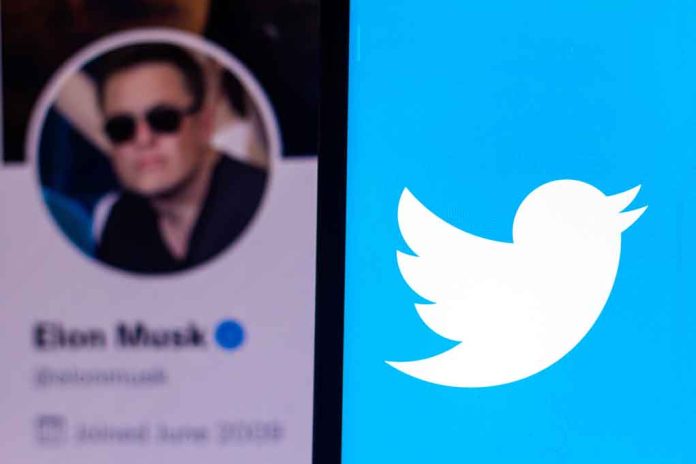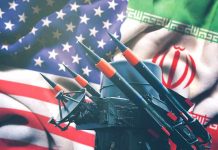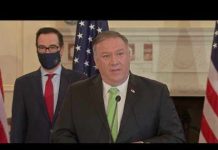
Elon Musk publicly breaks with Donald Trump on tariff policies, proposing a zero-tariff agreement between North America and Europe while criticizing the president’s economic advisors and their academic credentials.
Key Takeaways
- Elon Musk has publicly advocated for a zero-tariff agreement between Europe and North America, directly challenging Trump’s protectionist policies.
- Trump recently announced a 20% tariff on European goods and higher rates for other countries, calling it “Liberation Day” for America.
- Musk specifically criticized Trump’s trade advisor Peter Navarro, suggesting that his Harvard economics PhD is “a bad thing, not a good thing.”
- Navarro responded by claiming Musk is “simply protecting his own interests” as Tesla’s supply chain sources parts from countries targeted by the tariffs.
- Stock markets reacted negatively to Trump’s tariff announcements, with major indices experiencing significant drops.
Musk’s Free Trade Vision Clashes with Trump’s Tariffs
Tesla CEO Elon Musk has taken a firm stance against President Donald Trump’s recently announced tariff policies, creating a notable rift between the two high-profile figures. Musk, who has been working with the Trump administration through the Department of Government Efficiency (DOGE), publicly advocated for eliminating tariffs between North America and Europe rather than increasing them. His position directly challenges Trump’s protectionist approach, which includes a 20% tariff on European goods and even higher rates for other countries like China, which faces a 34% tariff.
Criticism of Trump’s Economic Advisors
Musk’s critique extended beyond policy disagreements to personal attacks on Trump’s economic advisors. On his social media platform X, Musk specifically targeted Peter Navarro, suggesting that his academic credentials from Harvard were more of a liability than an asset. “A PhD in Econ from Harvard is a bad thing, not a good thing. Results in the ego/brains>>1 problem,” Musk wrote, implying that Navarro’s education had given him an inflated sense of his own intelligence. Additionally, Musk mocked Commerce Secretary Howard Lutnick’s defense of tariffs targeting the remote Heard and McDonald Islands, using humor to undermine the administration’s trade policy justifications.
The criticism prompted a swift response from Navarro, who suggested that Musk’s position was driven by self-interest rather than economic principles. “Elon when he’s in his DOGE lane is great, but we understand what’s going on here. Elon sells cars. He’s simply protecting his own interests,” Navarro stated, acknowledging that Tesla’s global supply chain could be significantly impacted by the new tariffs, as the company sources parts from several countries now targeted by Trump’s trade policies.
Economic Philosophy and Market Reactions
In advocating for free trade, Musk aligned himself with traditional conservative economic thought by sharing a video of renowned economist Milton Friedman discussing the merits of free trade and the negative impacts of tariffs. Friedman’s arguments, which Musk promoted, emphasize that tariffs ultimately harm both production and consumption, using the steel industry as a case study. This intellectual approach stands in stark contrast to Trump’s declaration that “Some day people will realize that Tariffs, for the United States of America, are a very beautiful thing!”
Financial markets have already responded to the tariff announcements, with major stock indices experiencing significant drops. This reaction suggests that investors share some of Musk’s concerns about the economic impact of increased trade barriers. Despite the market turmoil, Trump and his advisors remain confident in their approach, with Navarro predicting a strong economic boom under these policies. He maintains that the international trade system has been unfair to the United States and that the tariffs will correct this imbalance.
Political Implications of the Disagreement
While both men have downplayed any personal rift, the substantive policy disagreement reveals important divisions within conservative economic thinking. The debate highlights the tension between traditional free-market principles and the newer populist approach to trade that emphasizes protecting American industries. For voters concerned about the economy, this disagreement between two prominent conservative figures presents contrasting visions of how to ensure American prosperity in the global marketplace.
As these economic policies develop, their impact will be closely watched by businesses, consumers, and political observers alike. The outcome of this debate could significantly influence not only America’s trade relationships but also the future direction of conservative economic policy in a rapidly changing global marketplace.
Sources:
- Elon breaks with Trump on tariffs as he goes public with White House dissent
- Trump trade adviser Peter Navarro hits back at Elon Musk’s tariff criticism: ‘He’s simply protecting his own interests’
- Elon Musk Takes Apparent Stance Against Trump Tariffs, Quotes Famed Economist On Merits Of Free Trade




